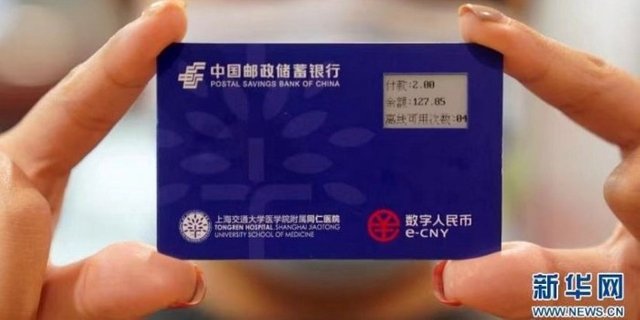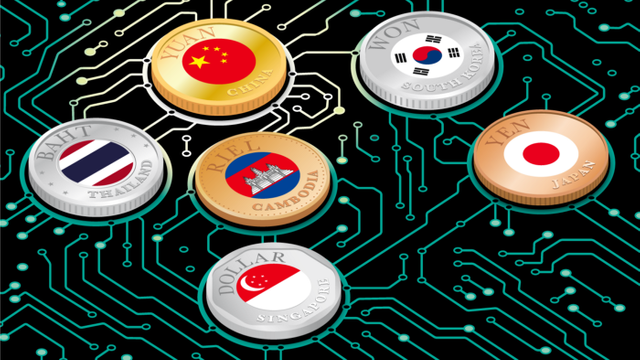China: pressure on crypto money — promoting the digital yuan
A super-independent digital currency poses a threat to the state. The government has long decided on the main direction: China needs a digital yuan.
Trend 2011–2021
In 2011, the first crypto-exchange BTC China was launched in China, and in 2013, the largest manufacturer of mining equipment, Bitmain, was created.
They were followed by the emergence of new crypto-exchanges and mining farms. In China, they were very familiar with electronic means of payment thanks to Q-coin, the in-game currency from Tencent. It was appreciated in the secondary market, people resold it for quite real yuan.
Before the first cryptocurrency rush in 2017, China became a very influential player in this industry, becoming a center for trade and production of equipment for mining and direct mining of bitcoin. However, the country’s leadership soon decided on its final position: the government is not on the way with decentralized and anonymous cryptocurrencies.
Last fall, the first digital yuan topped the wallets of ordinary citizens. As part of the largest test, 50 thousand citizens of the country distributed 200 digital yuan (about $ 30) each.
They were available in a special application, the download link of which was sent by the government through messages. On the screen of this application, people were able to see the coveted amount, which at that time could only be paid at 3 thousand points (shops, cafes, taxis) connected to testing.
In the summer of this year, 20 million digital yuan wallets were reported, by November, transactions totaling $ 9.7 billion were carried out, and the number of outlets that are technically capable of working with digital yuan has grown to 1.6 million.
At the same time, these wallets are not only an application on a smartphone, but also wearable devices in the form of watches and bracelets. With the introduction of technology, China is in a hurry for the Winter Olympics when an influx of foreigners is expected.

Digital yuan
It’s like a regular paper yuan, but only in digital code. The existing popular cryptocurrencies at this stage are not just virtual money, but an asset, the measure of the value of which is constantly changing due to limited emission and the mechanism of supply and demand.
The digital yuan will cost the same as the paper one. It is also prone to inflation, also issued by the Central Bank of China, also circulates in the general money supply. The central bank classifies the digital yuan as a monetary aggregate M0 — cash (similar to standard coins and banknotes in circulation in the economy).
Each unit of digital currency is uniquely identified, has a high degree of protection against counterfeiting, but has no material embodiment — in fact, it is stored in the database of the Central Bank, where its owner is recorded.
This makes her similar to non-cash money in a bank account. However, non-cash can be exchanged for physical paper at any time, and a commercial bank is responsible for the safety of your account.
The digital yuan has one key advantage that can make it more attractive: it can be used offline without any internet connection.
As part of one of the testing stages, users of some Huawei and Vivo smartphones had an offline wallet function through a special application for offline payments. If there is no connection, this application does not need to perform an operation through the back-end system.
Instead, the participants in the transaction had to verify the identities of the parties to the transaction, confirm the transaction information, and pay through the wallet.
In addition, users can pay using offline QR codes, offline peer-to-peer payments based on short-range communication technology, or online payments through e-commerce platforms.
There are even real physical incarnations of wallets with Yuan embedded in chips. Such a device was developed by the Postal Savings Bank of China. It is a card with a small black and white screen in the upper right corner showing the balance of funds.

Appointment
The digital renminbi seems to fit into the current policy of tightening surveillance of major tech giants in China.
According to some estimates, almost $ 20 trillion passes through the Alipay payment system, Internet giants such as Alibaba control huge financial flows, trade, content, data on hundreds of millions of users and are becoming overly influential.
China wants to regain control of payments that are increasingly hidden in mobile applications owned by private firms.
Official Beijing has long established a reputation for being a government that closely monitors the lives of its citizens. Therefore, the digital yuan will be associated with another way of monitoring the population.
The essential difference between cryptocurrencies and the digital yuan lies not only in the fact that the state is in charge of issuing the latter, but also in the fact that the yuan will only have a kind of “controlled anonymity.”
To start a wallet, you only need a mobile phone number. True, to get it, you need to provide all your passport data, so the “anonymity” is really illusory.
And the acceleration in the development of the digital yuan is associated with the threats that are seen in cryptocurrencies. That is why, in recent years, the country first banned crypto trading, and then the miners themselves came under attack.
In addition, the circulation of the digital yuan will reduce the costs of issuing banknotes and related operations with them (collection, ATM network), it will be more convenient to calculate tax deductions and make incentive payments to citizens.
Also, digital currency can reduce transaction fees, since current payment systems (for example, Visa or Mastercard) receive their rewards for each transaction.

Global vector
In October, a pilot project for the digital currency of the Central Bank of Nigeria, eNaira, was launched, and eight months earlier, cryptocurrencies were banned in the country.
The Central Bank of Nigeria has a centralized blockchain ledger that records all transactions with eNaira. It complements, but does not replace, paper cash in the country.
A total of 500 million eNaira were issued, which is roughly equivalent to $ 1.21 million. They are pegged to fiat currencies and backed by the country’s cash reserves.
Although the national currency in Nigeria is not particularly trusted. Since the beginning of the pandemic, it has dipped by 12.5%, and therefore many citizens have used cryptocurrencies both to save their own funds and to pay.
Nigeria was considered the sixth country in the world in terms of crypto distribution, which posed a serious challenge to the domestic national currency.
The central bank of Brazil is also about to launch its digital alternative to cash, after four years of research, Norway’s main bank will start testing.
In 2021, the Swedish Central Bank began testing digital currency transactions with commercial banks.